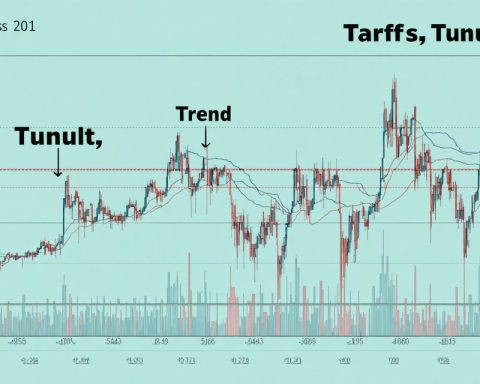Samsung Electronics, the global leader in memory chips, is gearing up to announce that its profit growth decelerated yet again, as it remains in a tough spot with Nvidia’s aggressive demand for artificial intelligence chips. As the dominant force in the smartphone and TV markets, Samsung is projected to report an operating profit of 8.2 trillion won (~S$7.6 billion) for the recent quarter. Although this marks an increase from 2.8 trillion won the previous year, it falls short compared to 9.18 trillion won from the quarter before.
A wave of analyst predictions suggests operating profits might dip below eight trillion won, reflecting growing challenges. Back in October, Samsung acknowledged its underperformance for the third quarter and outlined improvements aimed at bolstering its AI chip supply to Nvidia. However, further updates have been lacking, leading to continued earnings strain due to delayed deliveries of high-end chips.
In a strategic shake-up, the company replaced several key figures in its chip division in November. Despite these changes, Samsung’s stock suffered a 32 percent drop in 2024, significantly underperforming compared to the broader market’s decline.
Meanwhile, competitor SK Hynix is on track for record-breaking earnings, thanks to its robust supply of advanced AI memory chips to Nvidia. Samsung faces additional pressure from diminishing demand for traditional chips and growing competition from Chinese manufacturers, causing a slump in chip prices. The weakened South Korean won also plays a role, counterbalancing positive currency conversion benefits with broader political and economic uncertainties, including proposed US tariffs on imports.
Is Samsung’s Grip on the Chip Market Slipping? New Challenges and Opportunities Explored
In the ever-evolving landscape of technology, Samsung Electronics, a titan in the memory chip industry, faces heightened challenges that could reshape its future. As artificial intelligence (AI) continues to dominate tech discourse, Samsung grapples with intensified competition from rivals like Nvidia and SK Hynix, promising a compelling narrative of shifting market dynamics.
Market Analysis: Samsung’s Current Standing
Despite reporting a steady operating profit of 8.2 trillion won (~S$7.6 billion), Samsung has encountered a slowdown in profit growth—a far cry from the previous 9.18 trillion won. This has led analysts to predict that the company’s profits could dip even further, possibly below eight trillion won, amidst NPQ_transient_word_flags weak global demand and competitive pressures from companies specializing in AI memory chips.
Samsung’s stock reflects market sentiment, dropping by a striking 32% in 2024, significantly underperforming against the broader market’s fluctuations. This stock decline can be partly attributed to internal reshuffling within the company’s chip division and the overall decline in demand for traditional memory chips.
Innovative Strategies and Potential Opportunities
Samsung is not passive in the face of these challenges. In response to its recent struggles, the company has restructured its chip division leadership, aiming to enhance its competitive edge and production capabilities, particularly in AI chip supply. This strategic overhaul is anticipated to accelerate the company’s AI ventures and strengthen its collaboration with partners like Nvidia.
Samsung’s continued investment in R&D for high-end chip technology is poised to bolster its position. By focusing on expanding its portfolio of AI-driven products, Samsung could harness future AI advancements, offsetting the waning demand for traditional chips.
Regional Competition and Economic Influences
The competitive landscape is becoming crowded, with SK Hynix emerging as a formidable rival by delivering state-of-the-art AI memory chips. Additionally, the rise of Chinese manufacturers presents another layer of competition, leading to a decline in overall chip prices.
Externally, the fluctuation of the South Korean won presents a mixed bag of impacts, with companies like Samsung experiencing both currency conversion gains and broader economic uncertainties, like potential US tariffs.
Trends and Predictions: Navigating Future Challenges
Experts predict the demand for AI-specific chips will continue to surge, emphasizing the need for industry players to adapt swiftly. Samsung’s focus on AI chip production aligns with this trend, suggesting that its current strategies could sustain long-term growth if adequately executed.
The company’s ability to pivot effectively and innovate in the AI space will be crucial for maintaining its market dominance. As tech markets mature, Samsung might explore diverse tech investments beyond chips to bolster its economic resilience.
In summary, while Samsung grapples with immediate challenges in the chip market, its forward-looking strategies and innovative initiatives could drive long-term success and transformation in the face of adversities. For more insights on Samsung’s product innovations and corporate strategies, visit Samsung’s official webpage.



















